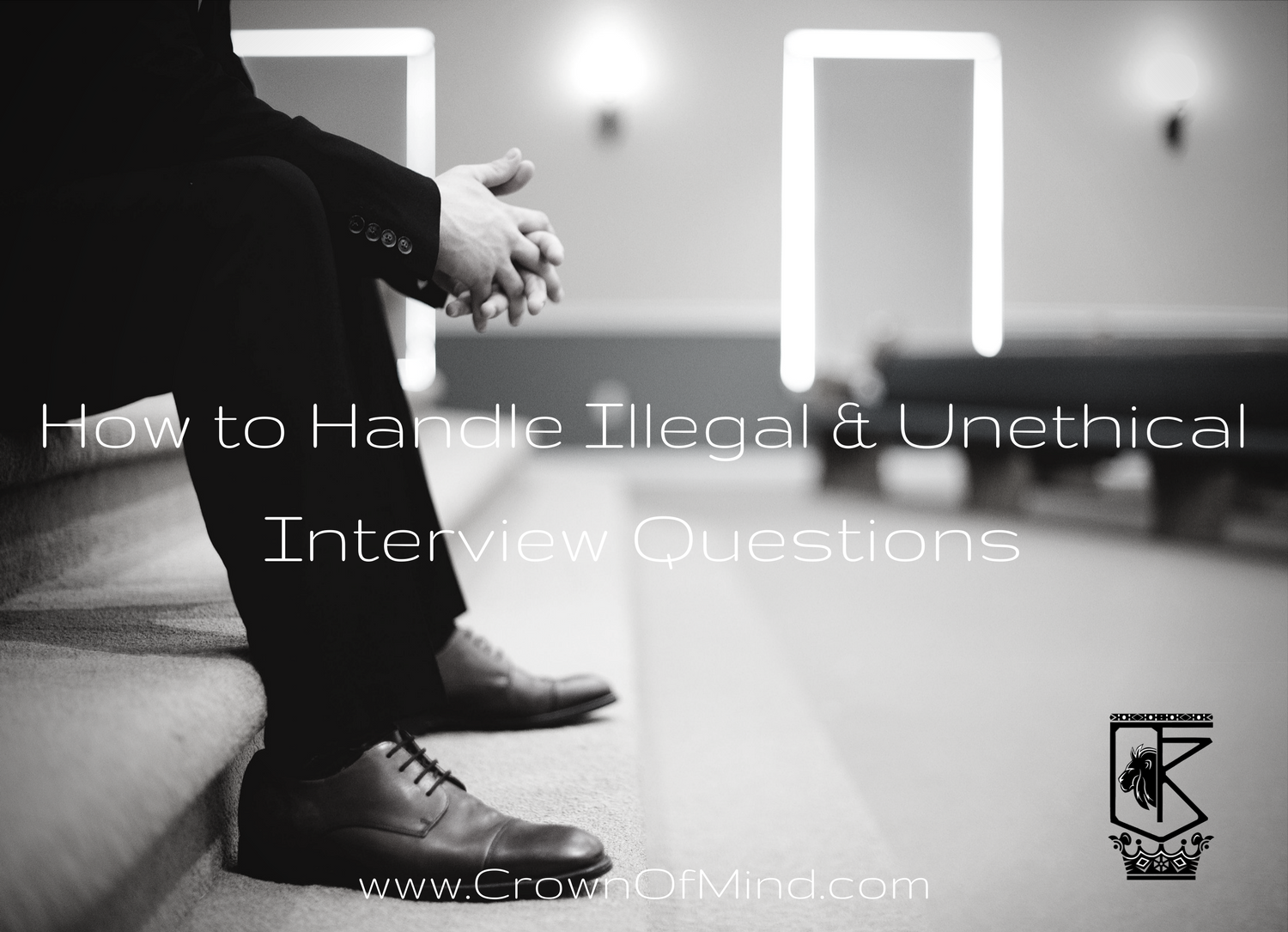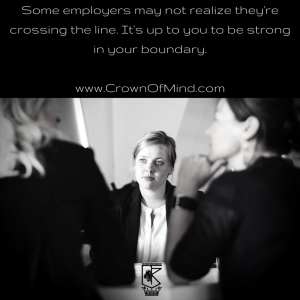Did you know there are illegal and unethical interview questions? That there are questions you do not have to answer and they cross the bounds of what should be covered?
This is rarely discussed and I sense part of that is because the ball is assumed to be in the court of the employer at all times. But as I’ve stated in the past, an employment is not a subservient relationship unless it’s allowed to be. An employment is an agreement between two parties (when it’s consensual), the employer and employed, however that agreement shows up through some form of contract, where the employer needs the employee’s offering just as much as the employee needs the employer’s offering. There is no “employer” without people to employ, and there is no “employee” unless someone employs that person. The relationship is reciprocal.
This understanding is lost when either the employer or employee forgets the nature of the relationship.
Companies would have you believe that you’re totally expendable, but smart leadership would realize it can actually cost more money to continue firing and hiring than work on development of the current staff. And if you’re highly talented (equated to adding high value to the organization), the cost of losing you goes beyond the dollars. The “expense” also includes:
- Your efficiency
- Your skill set
- Your ability to train others with your skill set
- Productivity speed
- All of the inner qualities that support your skill set
- The continuation of any project you’ve been working on with your skill set
- Losing the potential for successors of your skill set
- Any leadership influence you’ve had in the company culture
- Potentially adding even more value to the next organization you work with because you’ve now combined your high talent with the experiences gained from the previous company
Savvy employers will recognize these additional “costs” that aren’t immediately quantified. They fall into the spectrum of “soft skill” and I find that term rather limiting. Since they don’t offer immediate data they are given this category.
This is all to provide you with a sense of mental positioning when you’re dealing with employers in an interview, so you can recognize that you are actually valuable in the process and it is not really a lopsided affair, where you bow down to the interviewer’s requests. Refer to my post on the yellow chakra and why it’s important to have high self-esteem to perceive this.
When there IS a domineering environment in your interview, the employer CAN get away with asking you questions that are illegal, unethical or both.
Basic Categories: Illegal, Unethical & Off Limits
These are…
- Topics about your age
- Topics about your appearance
- Topics about your personal life
- Topics about your health
- Anything that has nothing to do with the functions of the role you’re interviewing for
Easy right?
Sometimes it’s not easy to recognize the different forms they show up, and can be more difficult for the novice to handle them. Let’s begin with samples. If you’ve been asked these and answered, you consented to illegal and unethical questioning.
Age
1. How old are you?
2. Oh, what’s your age again?
3. What year were you born?
Health
1. Do you have any medical conditions?
2. I can’t believe it, really? You actually eat meat? I’m a big vegetarian! (Could be a way to apply bias towards you)
3. How often do you visit the doctor?
Appearance
1. Oh wow you look great, how are you so pretty?
2. Can you wear makeup like that everyday on the job?
3. How much do you weigh?
Personal Life
1. You? I can’t believe you’re not married.
2. How many kids do you have?
3. We like our staff to have hobbies outside of work.
Other
1. How tall are you?
2. Can you work with a group of men/women?
3. Are you on any drugs or medication?
4. Are you married?
5. Have you ever been arrested?
6. How long does it take for you to reach here from your home?
7. What don’t you like about yourself?
These questions will be asked in such a casual manner that you feel they are normal for an interview. These are different from building rapport with the employer.
What makes an interview question illegal is it violates your chance for opportunity with an “ism,” that is age-ism, sex-ism or race-ism. What makes a question unethical (but not illegal) is it doesn’t focus on your capability to perform the job function successfully and it’s used as weighing information for you to be hired. They are questions that sneakily form a profile of you based on some prejudice.
The food question, for example, is a subtle way to find out if you are a meat eater and whether that manager wants to hire someone who isn’t a vegetarian, which has nothing to do with your job as an administrator or customer service person or executive.
So how do you handle these onslaughts?
By stating this (use your own words):
“What does this question have to do with evaluating my candidacy for the XYZ position?”
“How am I being evaluated based on this information for the XYZ position?”
And if you’re yellow chakra is on high heat:
“This is an illegal/unethical question Sir/Miss, I am not comfortable answering that for this position.”
If you’re feeling nervous about saying any of these to an employer it’s because the perception of the employer-employee relationship still requires reshaping.
Remember: an employer who values you for the competency you bring, sees you as an asset and has an ethical work culture will not ask you these questions on an interview.
A side note before concluding: There are some positions that need to know this information, like the military needs you to be at a certain fitness level. Construction work does require physical exertion so some level of physical aptitude is needed. A 550-pound obese individual would not be effective walking on the roofs and platforms to build a commercial building. A person with a chronic, physical health condition may not be a fit for a nurse’s role, where there is much walking, standing and other strenuous effort with patients. Employers in these spaces make it very clear from the start on the nature of the work, and the candidate should know ahead of time through research about this.
A second side note: Some information like age and address will be known from the applications you complete. This information may be required on the document but remains off limits during interviews. These are two different scenarios.







